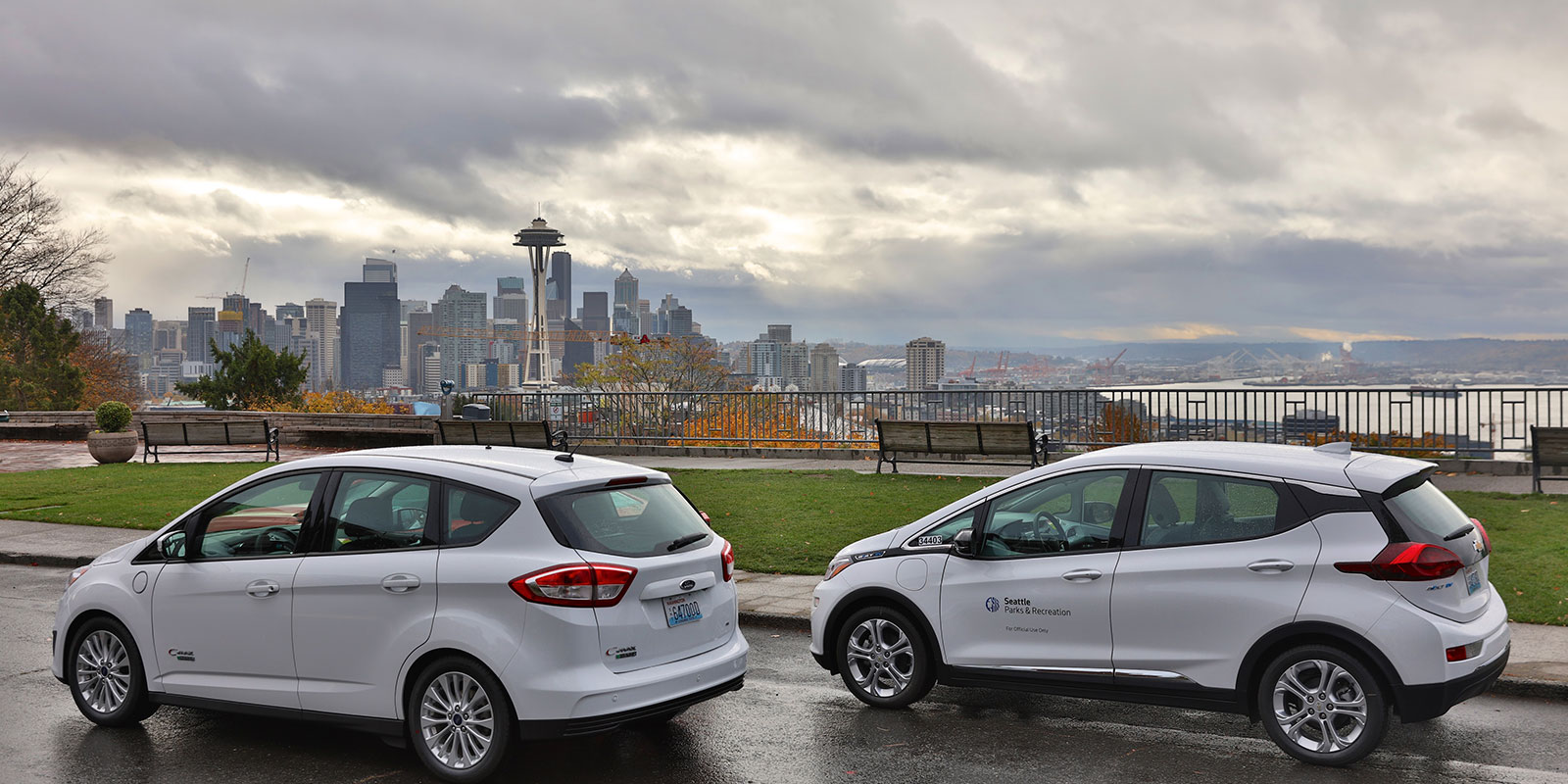
Seattle
Over the last decade, Seattle has guided growth to transit-accessible urban villages, increased affordable housing, and supported leading building and energy codes.
In 2011, Seattle adopted the goal to become carbon neutral by 2050. We have made substantial progress toward this goal through investments in shifting our transportation away from single occupancy vehicles, such as walking, biking and transit, as well as vehicle electrification. Over the last decade, we have guided growth to transit-accessible urban villages, increased affordable housing, and supported leading building and energy codes.
As one of the fastest growing cities in America – Seattle add 57 new residents every day – the city must continue to explore bold actions to ensure we meet our climate goals and do our part under the Paris Climate Agreement. The focus of these actions is in our largest emissions sectors: buildings and road transportation.
The overall approach to carbon reductions in our buildings is to provide information, financial and other incentives, and technical assistance, while establishing strong standards for efficiency and emissions. To reduce transportation emissions, we are leveraging both technological advances and cultural shifts in how people move around our city to reduce trips and transition our cars, trucks, and buses to fossil fuel-free solutions. Seattle City Light is the first carbon neutral utility in the nation.
Our climate policies are created through a race and social justice lens, to ensure those who are most impacted by climate change and issues of affordability have the opportunity to benefit from solutions. Seattle’s Equity and Environment Agenda will guide us as we work with communities of color and lower income residents to create economic opportunities, mitigate cost burdens, and improve quality of life through climate action.
Read More
